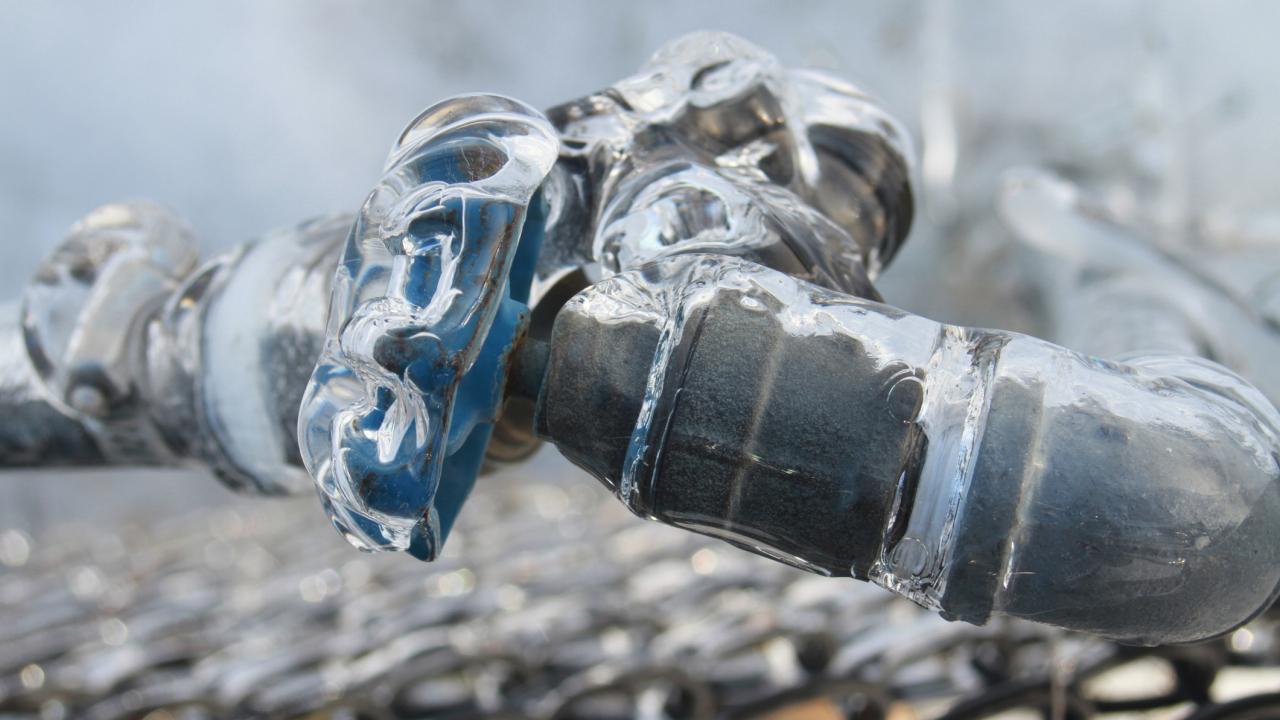Ways to Prevent Frozen Plumbing in Cold Weather: Expert Guidance
Ways to Prevent Frozen Plumbing in Cold Weather: Expert Guidance
Blog Article
Right here underneath you can find more very good insight around Helpful Tips to Prevent Frozen Pipes this Winter.

Cold weather can wreak havoc on your pipes, specifically by freezing pipelines. Here's just how to stop it from happening and what to do if it does.
Intro
As temperatures decline, the risk of frozen pipelines rises, possibly bring about expensive repair services and water damages. Comprehending how to prevent icy pipelines is vital for property owners in chilly environments.
Avoidance Tips
Shielding at risk pipelines
Wrap pipelines in insulation sleeves or make use of heat tape to secure them from freezing temperatures. Concentrate on pipelines in unheated or outside areas of the home.
Home heating techniques
Keep interior rooms adequately warmed, specifically locations with pipes. Open cabinet doors to allow warm air to flow around pipes under sinks.
Exactly how to determine icy pipes
Search for reduced water flow from taps, unusual odors or noises from pipes, and visible frost on exposed pipes.
Long-Term Solutions
Structural adjustments
Think about rerouting pipelines away from exterior wall surfaces or unheated locations. Add additional insulation to attics, cellars, and crawl spaces.
Updating insulation
Invest in top notch insulation for pipelines, attics, and wall surfaces. Appropriate insulation aids preserve consistent temperatures and decreases the threat of frozen pipelines.
Protecting Outside Pipes
Garden pipes and exterior faucets
Disconnect and drain garden tubes prior to winter season. Mount frost-proof spigots or cover outside faucets with shielded caps.
Comprehending Frozen Pipelines
What causes pipes to freeze?
Pipes freeze when revealed to temperature levels listed below 32 ° F (0 ° C) for extended durations. As water inside the pipes freezes, it expands, taxing the pipe wall surfaces and potentially triggering them to rupture.
Dangers and problems
Icy pipes can result in water supply disturbances, property damage, and expensive repair work. Ruptured pipes can flooding homes and create substantial architectural damages.
Indicators of Frozen Pipeline
Recognizing icy pipes early can stop them from rupturing.
What to Do If Your Pipelines Freeze
Immediate actions to take
If you think frozen pipelines, maintain faucets available to eliminate pressure as the ice melts. Make use of a hairdryer or towels soaked in warm water to thaw pipes slowly.
Verdict
Preventing icy pipes requires aggressive steps and fast reactions. By understanding the reasons, signs, and preventive measures, house owners can safeguard their pipes during winter.
6 Proven Ways to Prevent Frozen Pipes and Protect Your Home
Disconnect and Drain Garden Hoses
Before winter arrives, start by disconnecting your garden hoses and draining any remaining water. Close the shut-off valves that supply outdoor hose bibs and leave the outdoor faucet open to allow any residual water to drain. For extra protection, consider using faucet covers throughout the colder months. It’s also important to drain water from any sprinkler supply lines following the manufacturer’s directions.
Insulate Exposed Pipes
Insulating your pipes is an effective way to prevent freezing. Pipe insulation is readily available at home improvement stores and is relatively inexpensive. Pay close attention to pipes in unheated areas such as the attic, basement, crawl spaces, or garage. Apply foam insulation generously to create a buffer against the cold. You can also wrap your pipes in heat tape or thermostat-controlled heat cables for added warmth.
Seal Air Leaks
Inspect your home for any cracks or openings that could let in cold air. Seal any holes around the piping in interior or exterior walls, as well as the sill plates where your home rests on its foundation. Additionally, make sure to keep your garage door closed unless you’re entering or exiting. Leaving it open creates a significant air leak that can lead to frozen pipes.
Allow Warm Air Circulation
During cold snaps, it’s essential to allow warm air to circulate evenly throughout your home. Leave interior doors ajar to promote better airflow. Open kitchen and bathroom cabinets to help distribute heat consistently around the rooms. If you have small children or pets, be sure to remove any household chemicals or potentially harmful cleaners from open cabinets for safety.
Let Faucets Drip
A small trickle of water can make a big difference in preventing ice formation inside your pipes. When temperatures drop significantly, start a drip of water from all faucets served by exposed pipes. This continuous flow helps prevent the water from freezing. Additionally, running a few faucets slightly can relieve pressure inside the pipes, reducing the chances of a rupture if the water inside does freeze.
https://choateshvac.com/6-proven-ways-to-prevent-frozen-pipes-and-protect-your-home/

I recently found that page about How to prepare your home plumbing for winter weather while doing a lookup on the web. In case you appreciated our blog post kindly do not forget to pass it around. Many thanks for going through it.
Call Today Report this page